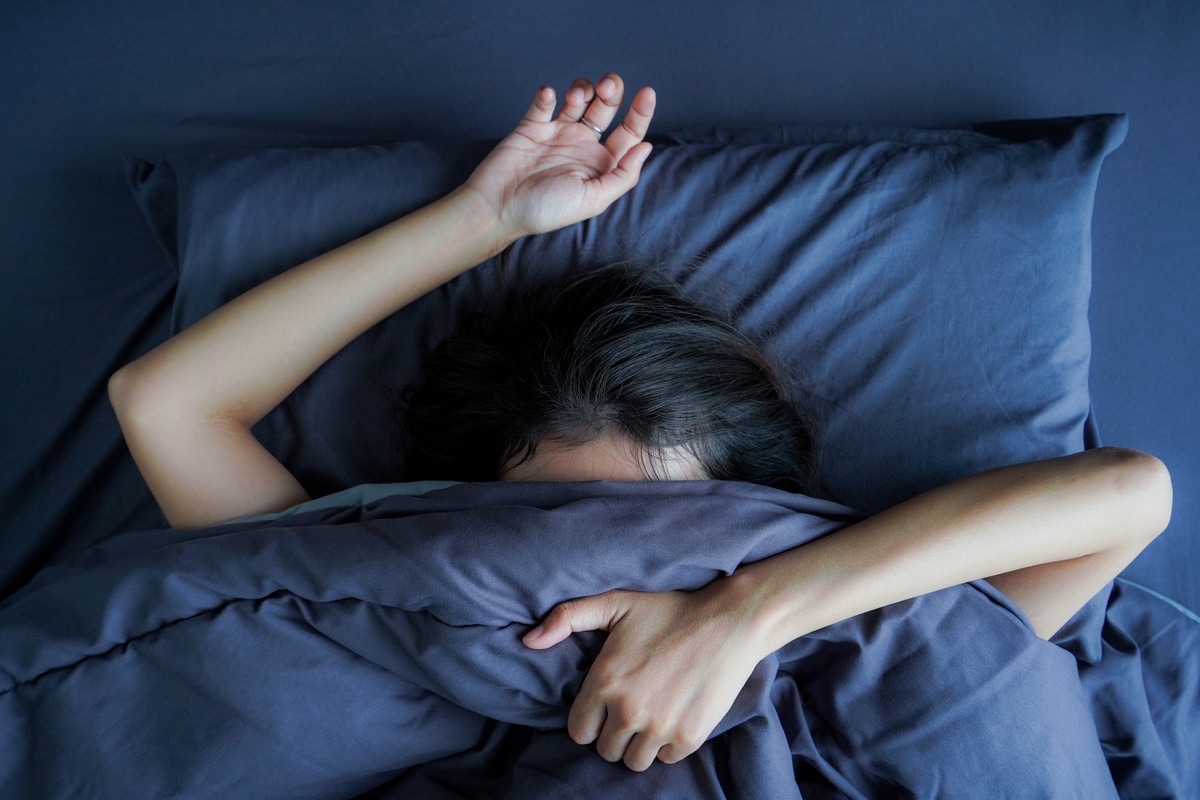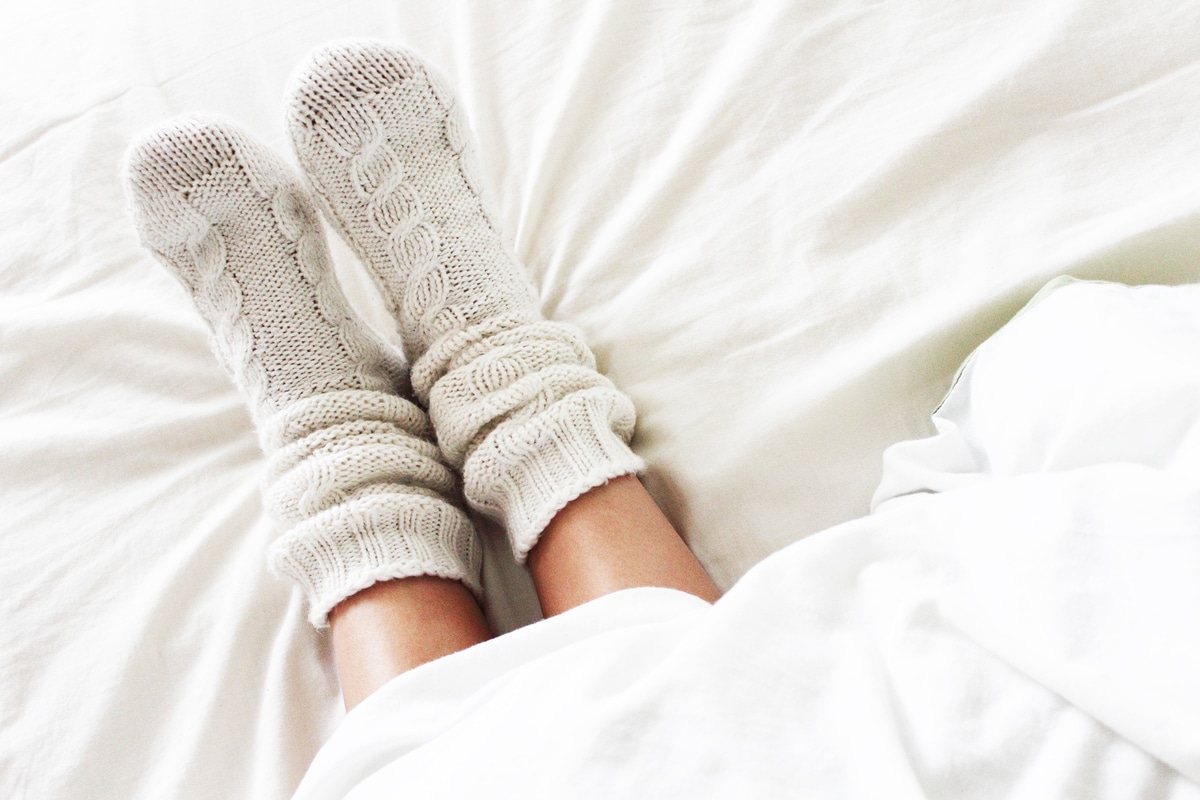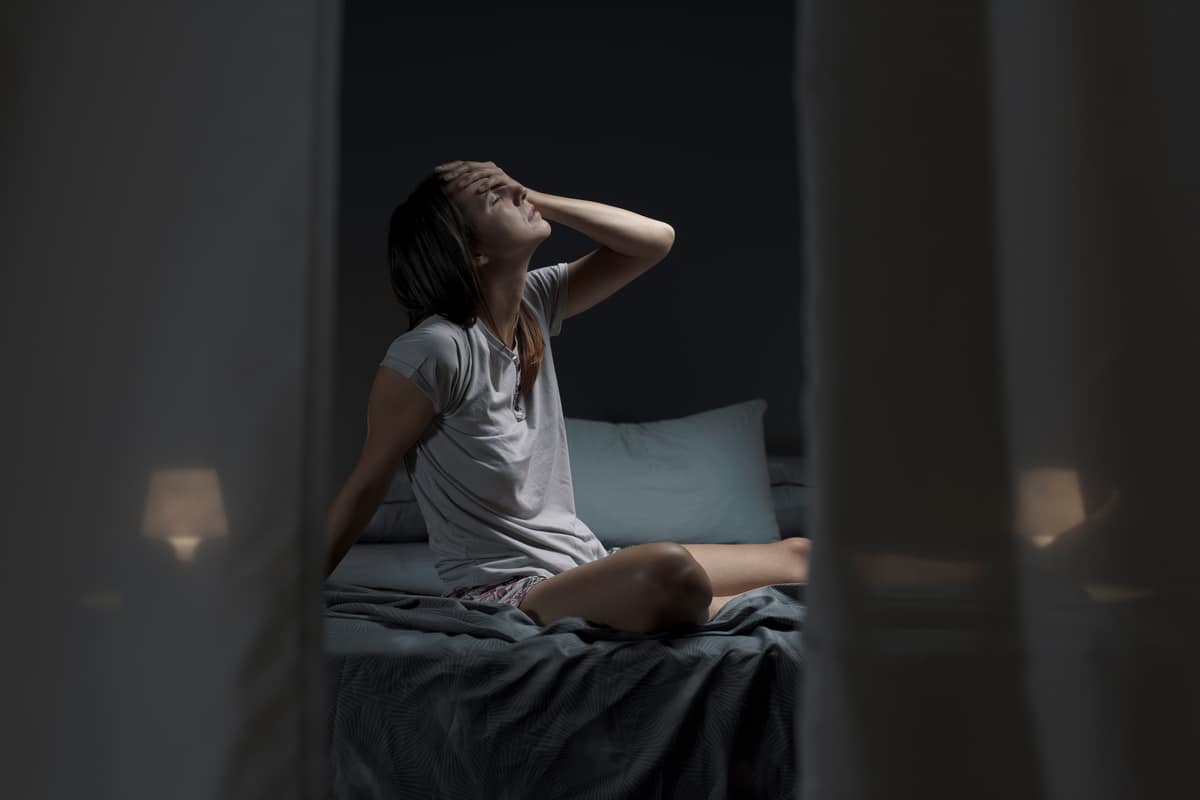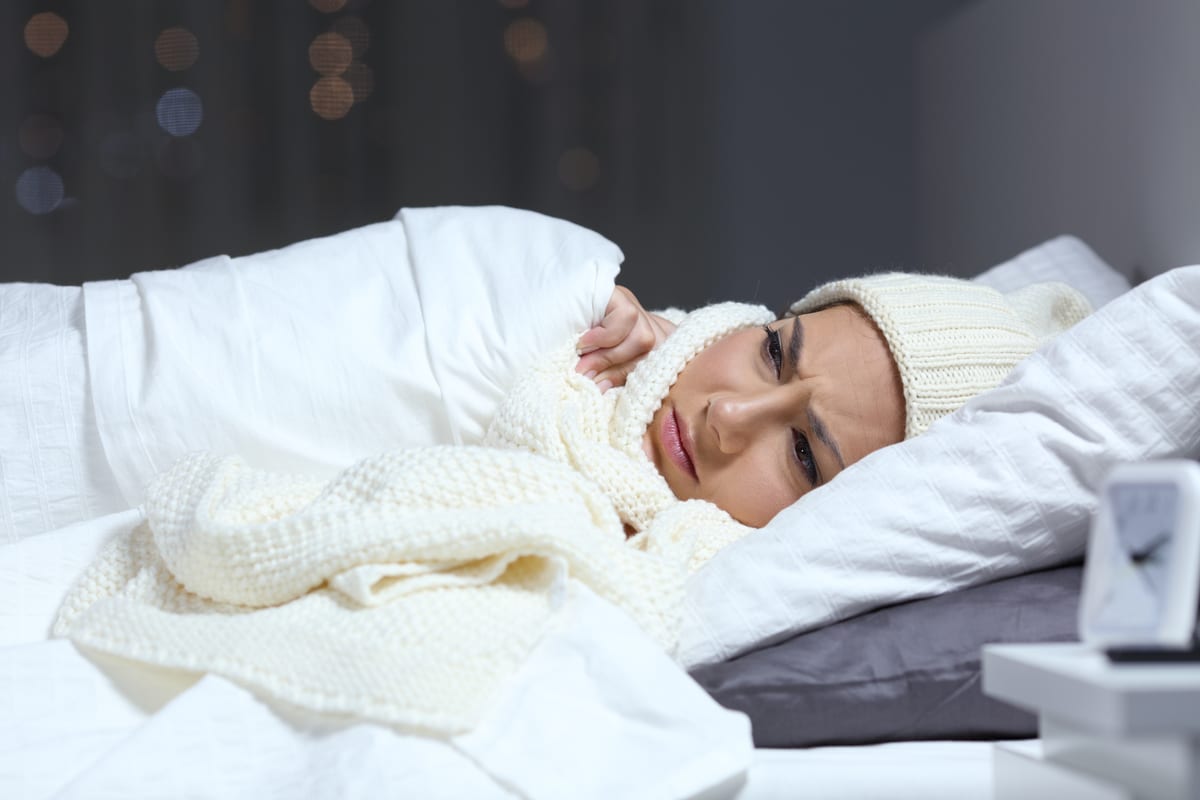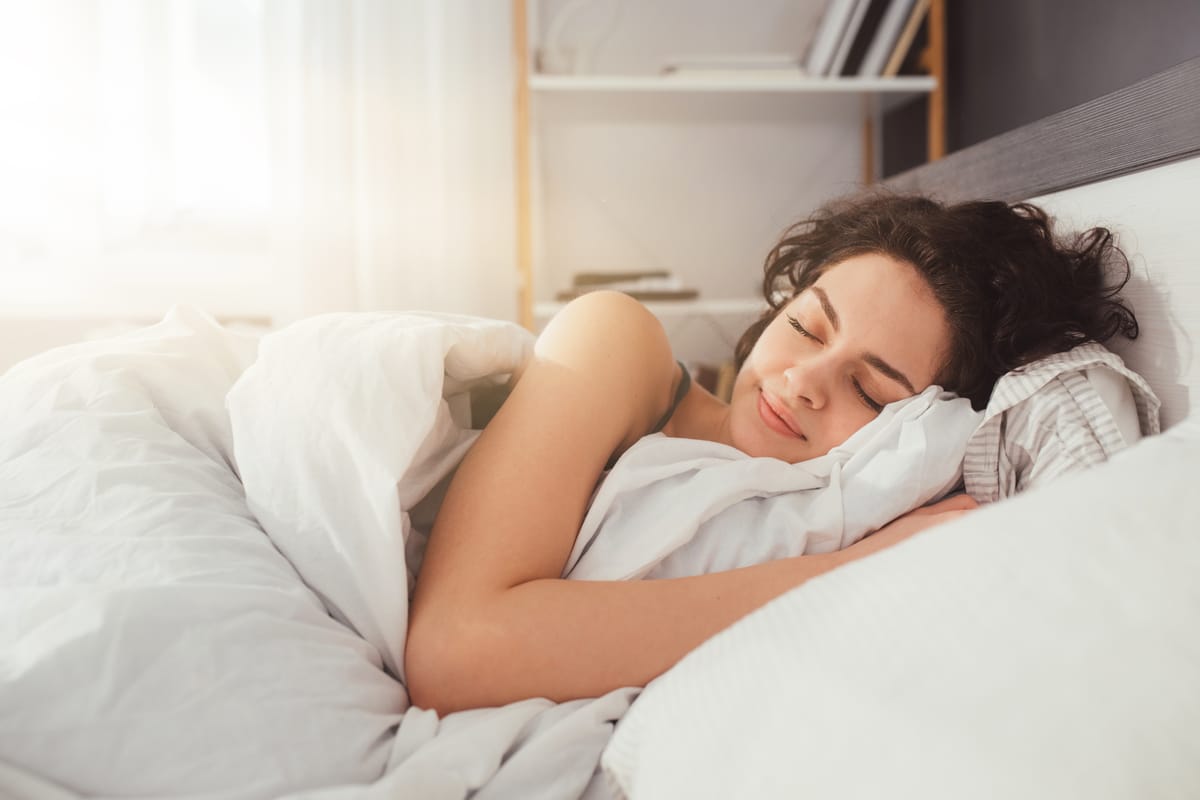
How much of our time do we spend asleep? How long can a person stay awake? And how does the human sleep cycle differ from other mammals? Many questions like these have been asked about sleep, and there is plenty of research that has found the answers.
Some people spend the whole day looking forward to bedtime, while others view sleep as somewhat of a nuisance. But regardless of how you feel about it, sleep is something that everyone does, and it has a bigger impact on our lives than we might think.
Curious about what goes on when the lights are out? Check out these 28 interesting facts about sleep!
28 Interesting Facts About Sleep
1. Not Everyone Dreams in Colour
Around 12% of people dream in black and white. Up until the invention of the colour television, this percentage was a lot larger—roughly two-thirds of the population.
2. The Internet Can Disrupt Your Sleep
Are you struggling to fall asleep at night? If so, it may be time to cut down your social media time. Studies suggest that spending too much time online can have a negative impact on your sleep schedule.
3. We Spend 33% of Our Lives Asleep
Humans spend around a third of their lives either sleeping or trying to fall asleep. Because it’s such an essential part of our survival, it’s no wonder that sleeping takes up so much of our time.
4. Many People Experience “Hypnic Jerks”
Have you ever woken up because you felt like you were falling? This is known as a “hypnic jerk,” and it affects over 70% of the population.
5. Sleep Deprivation Can Be Deadly
People can survive much longer without food than they can without sleep. So if you ever need to choose between eating and getting some rest, you’ll want to go with the latter.
6. Falling Asleep Usually Takes Between 10 and 20 Minutes
When you lay down for the night, it should take less than twenty minutes to completely fall asleep. But if you find yourself dozing off in less than five minutes, that could mean you are sleep-deprived.
7. The Longest Anyone Has Stayed Awake is Eleven Days
In 1964, a teenage boy named Randy Gardner went eleven consecutive days without sleep for a science fair project.
8. 30% of American Adults Don’t Get Enough Sleep
Do you have a poor sleep schedule? You’re not alone. Around a third of the American population gets less than seven hours of sleep every night.
9. There Are Over 100 Recognized Sleep Disorders
Sleep disorders come in four different categories: difficulty staying/falling asleep, difficulty staying awake, difficulty maintaining a sleep schedule, and unusual behaviours during sleep. From common insomnia to rare narcolepsy, it seems a lot can go wrong when it comes to sleeping.
10. You Burn Around 400 Calories Every Night
Did you know that sleeping burns calories? While the amount you can burn will vary depending on your weight, the average person burns 50 calories per hour, adding up to 400 calories in one night.
11. Newborn Babies Sleep Up to 16 Hours Per Day
Because babies spend so much time growing and developing, their bodies can use up a lot of energy. As a result, babies need twice as much sleep as the average human adult.
12. There Are Five Different Stages of Sleep
Throughout the night, we repeatedly cycle through five different stages of sleep. Out of these five stages, REM (rapid eye movement) is the period where all of our dreams happen.
13. Many People Experience Hallucinations Before or After Sleep
Have you ever woken up and seen something that wasn’t truly there? This is known as a hypnopompic hallucination. A similar phenomenon is a hypnagogic hallucination, which happens right before falling asleep.
Both of these conditions affect around 70% of the population.
14. Elephants Only Need Two Hours of Sleep
Elephants in captivity generally sleep between three and seven hours per night. In the wild, however, these mammals need to be more alert because of predators. As a result, they only sleep two hours every day.
15. Cats Spend ⅔ of Their Lives Asleep
When they’re not chasing toys and eating catnip, your cat spends 16 hours of their day in dreamland.
16. Biphasic Sleep Was Common in the Pre-Industrial Era
For centuries, people used to sleep in two separate phases rather than eight consecutive hours. Some believe that exposure to artificial lighting has caused this biphasic sleep cycle to fade out.
17. Sleep Strengthens Your Immune System
If you don’t get enough sleep, it can increase your chances of catching a virus the following day. So if you want to stay healthy, make sure you get at least seven hours of rest!
18. Genetics Can Affects How You Sleep
Can you function on just a few hours of sleep? There’s a good chance someone else in your family is the same way because evidence suggests this trait is genetic.
19. Sleepwalking Affects 6.9% of the Population
Sleepwalking is an uncommon condition that mainly affects children. If you find yourself waking up in a different place than where you fell asleep, you may be one of the small percentage of people who sleepwalk.
20. All-Nighters Can Decrease Your Performance
While staying up all night to prepare for a test can seem tempting, it can be worse overall than letting yourself rest. Students who haven’t gotten a good night’s sleep will have a poor time recalling information, regardless of how much they may have studied.
21. Aquatic Mammals Sleep With One Half of Their Brain
Because they can’t breathe underwater, aquatic mammals need to keep half of their brain awake at all times. This allows them to resurface for air throughout the night without waking up!
22. Kids Need More Sleep Than Adults
While most adults only need a minimum of seven hours per night, kids should get around ten hours of sleep.
23. What You Eat Can Affect Your Dreams
Those who enjoy sugary snacks before bed may be more likely to experience nightmares or otherwise bizarre dreams.
24. Exercising During The Day Can Help You Sleep At Night
Have trouble sleeping at night? Try working out more during the day; doing activities such as aerobics can not only help you fall asleep more easily, but it can promote a deeper sleep overall.
25. It’s Better to Sleep in a Cold Room
The ideal temperature for sleeping is somewhere between 60 and 67 degrees Fahrenheit. So next time you’re struggling to doze off, consider removing some layers or opening up a window.
26. The Moon Can Affect Your Sleep
According to some studies, many people will have a harder time falling and staying asleep in the days before the full moon.
27. Sleep Can Impact Your Mental Health
Lack of sleep can lead to symptoms that are quite similar to depression. So if you’re struggling with any mental health issues, it’s more important than ever to get plenty of rest.
28. Everybody Dreams
Everybody who sleeps has dreams, even if they don’t remember them. Most people have somewhere between four and six dreams per night.
Conclusion
Sleep is essential to our survival. It’s also one of the few things that connect us with nearly every animal on earth. From tiny mice to massive blue whales, just about every creature on this planet needs to rest its head from time to time.
Everyone has a different experience with sleep, and as a result, we’re constantly learning new things about it. As you learn more interesting facts about sleep, you may find yourself resting better in the future!
Looking to improve your sleep? Check out our range of blackout blinds, curtains and fabric, and get the fantastic night’s sleep you deserve.


